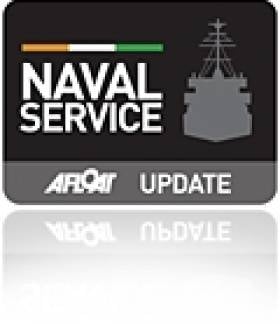Displaying items by tag: Naval Service Newbuilds
#NAVAL SERVICE NEWBUILDS - Minister for Justice Equality & Defence, Mr. Alan Shatter, T.D., announced on Friday that the building of new Naval Service offshore patrol vessels (OPV) ships is well underway.
The keel laying ceremony of the first of two OPV's took place at Babcock Marine's shipyard in north Devon. Senior representatives of the Naval Service and the Department of Defence attended the ceremony at the UK shipyard which won the €99m contract to build the pair in 2010.
The cost is exclusive of VAT and subject to contract terms and final agreed costs. In addition the cost of providing a weapons system for the ships, similar to the systems on the LE Roisin (P51) and LE Niamh (P52) will be €7.8m, exclusive of VAT.
This pair are of the 'Roisin' class OPV's which were built at the same Devon yard then owned by Appledore Shipbuilders. The newbuilds are of the PV90 design which are a lengthened version of the PV80 class, which were also designed by STX Canada Marine and completed by Appledore in 1999 and 2001.
The PV90 newbuilds will retain the overall configuration of the PV80 but will be increased in length by over 10 metres. They are also to have a slightly deeper draft for improved sea-keeping while patrolling in rougher waters particularly throughout Ireland's extensive naval duties in the Atlantic.
In addition there will be more space at the aft-deck to load on board containers and an increased speed to 23 knots. The will be crew for 44 personnel plus additional quarters for 10 trainee crew.
The payment contract schedule has been arranged over an eight-year timeframe, being 2010 to 2017 and funded from within the annual Defence budget.
The first newbuild is due for delivery in early 2014 followed by the second vessel in 2015. The PV90 class are to replace two of the older Naval Service ships from operational service while maintaining an eight-strong fleet.





























































